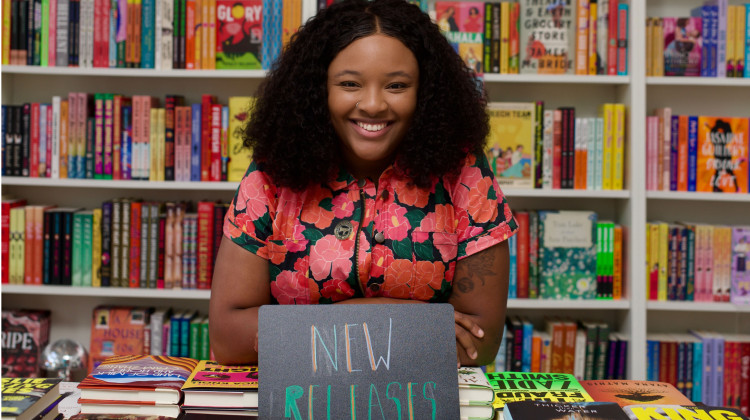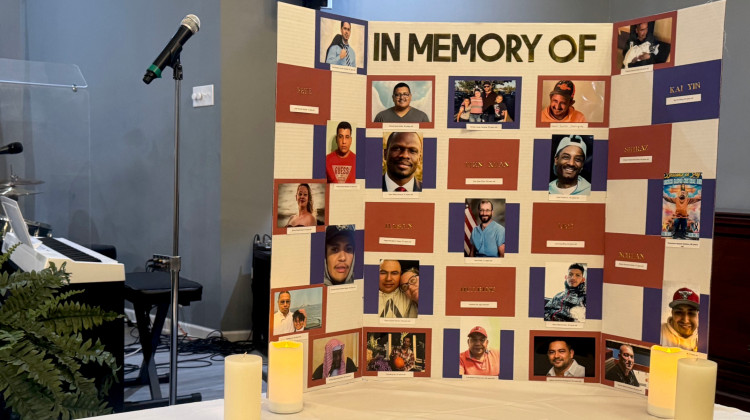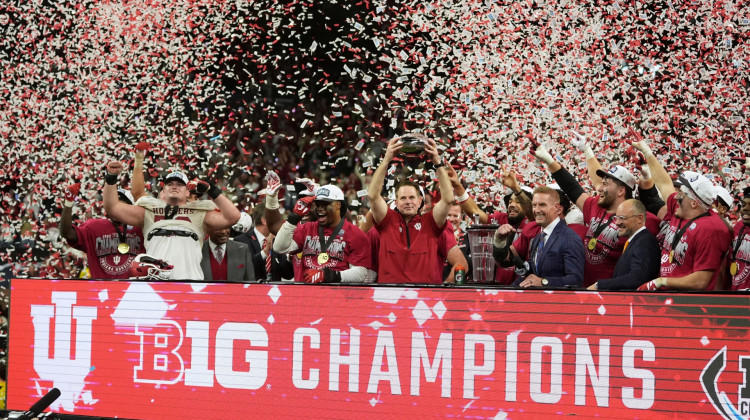Last year, Central Indiana author Leah Johnson’s young adult novel “You Should See Me in a Crown'' was labeled as “obscene content” and challenged by the Oklahoma Attorney General. The book explores many issues around race, class, and sexuality.
She said the issue became even more personal for her when her home state Indiana passed a controversial law that requires public and charter schools to establish a process to allow both parents and community members to challenge books in school libraries that they believe are inappropriate for children. It also requires schools to publicly post their library catalogs and bars public school employees from using a book’s educational value as a defense against charges they distributed harmful material to minors. Johnson’s mother, Indiana State Representative Renee Pack fought against that law at the Statehouse, and Johnson said watching her mother’s work inspired her to do more.
So she started a book store — Loudmouth Books in the Near Northside neighborhood. It opened the Saturday before national Banned Books Week. She now sells books by, for and about marginalized people and other books challenged by school or government systems. WFYI’s Darian Benson spoke with Johnson to talk about her aims to counter book censorship.
This interview has been edited and condensed for clarity.
Darian Benson: There's been a lot of debate this year about books censorship, and you know, who has access to books? Who controls that? Is this store a direct response to, you know, some of the things that came out of the 2023 legislative session in Indiana and across the country?
Johnson: You know, there are a number of things that I could say. But the truth is, this was a product of rage and indignance. I was waking up every day and receiving Google Alerts, not just about my books, but my friend’s books that were being banned or removed from shelves or challenged. It was bad enough that it was happening all over the country, but to see it happen in this place that I have invested so much of myself in, this place that raised me, felt particularly insidious. And so, my mom who is a state representative, my mom was going into the Statehouse every day, and I was just watching her put up these incredible fights full of principle and values, and be shot down every turn by the supermajority. And outside of my own personal experience, I think watching my mom continue to get up and mount that fight every single day made me feel like what I was doing wasn't enough. The store was absolutely a direct response to this year's legislative session. But, it also is an extension not only of my work as a writer, but it also is an extension of my politics. Which are all oriented towards equity and uplift of marginalized communities.
Benson: Where did the name loudmouth come from?
Johnson: That's a great question. Loudmouth has two different prongs of meaning. One it is a name that I am quite familiar with being called as someone who has always been very outspoken about my values. It also is an assertion that this store is always going to loudly and proudly proclaim that we support marginalized authors, we uplift banned books, and we will always center the voices that other folks, especially in this community are aiming to silence.
Benson: Why is it important for youth specifically to have books that may be banned or censored or challenged?
Johnson: This is the million dollar question. What I will say is that books provide us with blueprints for a possible future. It shows young people that it is possible to be all the things that they are and be them without fear or shame. Books show young people that they're not alone. That there are other people out there who have had the experience that they're having and have survived it. I think, past that, though, the removal of books from shelves that reflect experiences of racism, a removal of queer people from public life, it is about a denigration of Black people who exist publicly and without fear. And that, to me, is of the utmost importance. There is no more important battle to me right now to fight than the fight to remain visible. Is this a children's bookstore? No, it's a bookstore for all people. But there will always be a special place not only in my heart, but in my store for young people who are yearning for that sense of being seen.
Benson: Thank you, Leah.
Johnson: Of course.
 DONATE
DONATE









 Support WFYI. We can't do it without you.
Support WFYI. We can't do it without you.